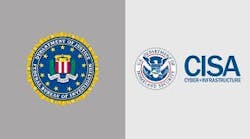National preparedness for a bioterrorist attack is still weak.
According to investigators in the United States, "September 11, 2001 demonstrated dramatic voids in national preparedness, and catalyzed massive efforts to identify and remedy vulnerabilities.
"Since Part I of this series appeared in August 2002, significant improvements have been achieved especially in bioterrorism and chemical terrorism for first responders and emergency medicine, law enforcement, and public health (surveillance)."
"Such efforts manifested benefits during the SARS outbreaks and monkeypox cases of 2003. Nevertheless, emerging infectious diseases will continue to pose a threat if we do not remain vigilant and continue to invest in training, surveillance, and treatments.
"As expected," R.B. McFee and colleagues wrote, "many poison centers and toxicologists have taken leadership roles nationwide. In regions where such leadership existed, preparedness levels are strong and collaborations resulted in the development of valuable response plans and training, including the Advanced Hazardous Life Support (AHLS) and Basic Disaster Life Support (BDLS) courses."
"Early success notwithstanding," continued McFee, "experts suggest that current national preparedness has improved slightly from '1' (9/11) to '3' out of '10'. Increasingly it has become evident that the nuclear threat, including radiation terrorism, is significant, against which the US remains inadequately prepared."
"Arguably the nuclear threat-whether accidental or planned-remains our highest consequence vulnerability, and we must rapidly improve our readiness across disciplines. Special populations including the elderly and children remain marginalized in preparedness protocols."
"Local vulnerabilities including chemical manufacturing and transportation - not just a risk for terrorism but industrial accidents - continue unabated," researchers said.
"Our early success is not an endpoint; much work remains and time is fleeting. This report examines vulnerabilities that must be addressed to enhance preparedness," McFee concluded.

